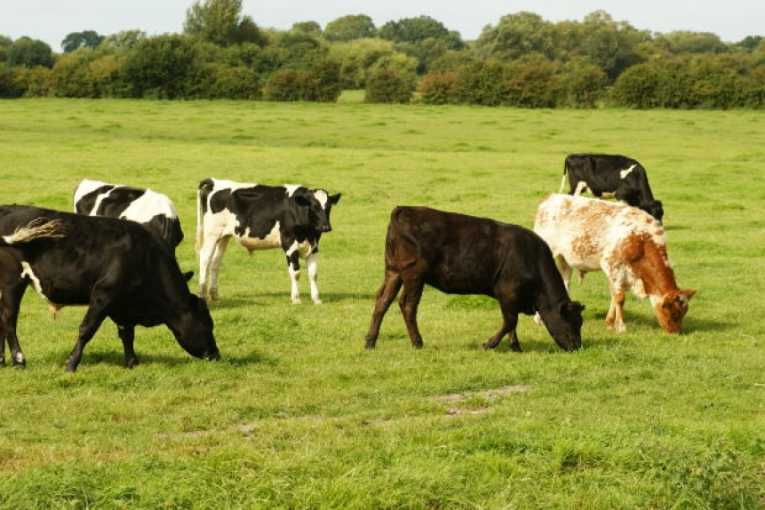Every cow, on average, produces 80kg to 100kg (CH4) of methane per year, a gas that has the nasty habit of depleting the ozone layer. The reason for this is enteric - in other words, it's related to digestion, but not in the way you might imagine.
A study conducted by Irish research group Teagasc recently revealed that belching was in fact the real culprit to methane production among cattle, accounting for 90% of all emissions. Cows digest their food though a system referred to as four-stomach fermentation and during this process, methane is exhaled through the nostrils and mouth (rather than in the form of farts!).
The reason for the study was to find ways to make Ireland's dairy and beef industries less polluting, as agriculture as a whole accounted for close to 30% of the country's greenhouse gas emissions in 2006, as compared to less than 10% in the EU as a whole.
As milk production is expected to increase in the short to medium term (milk quotas will be scrapped in 2015) the issue of methane production is high on Ireland's carbon reduction agenda.
Researchers are at the moment focusing on how to lower "methane emission intensity", i.e. how to reduce the amount of methane it takes to produce a liter of milk.
A number of measures are being considered to reduce these emissions, including extending the grazing season, increasing the amount of clover in the grass swards to maintain a high "leaf to stem ratio", and looking at which cow genotypes are more or less likely to produce methane.
Teagasc is collaborating with researchers in other countries to tackle the issue, through the EU Joint Programming initiative but also through the New Zealand-led Global Research Alliance on Agricultural Greenhouse Gas Mitigation. Almost half of New Zealand's greenhouse gas emissions could be attributed to agriculture in 2006.










